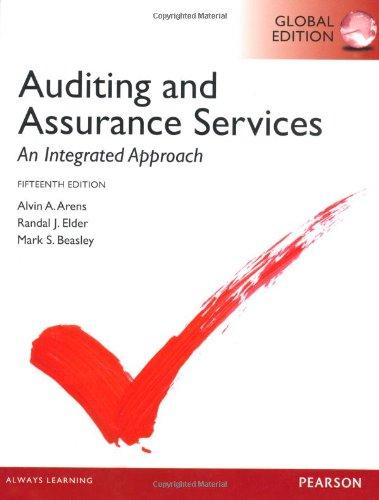Question
Frederick, Inc. uses activity-based costing to account for its chrome bumper manufacturing process. Company managers have identified four manufacturing activities: materials handling, machine setup, insertion
Frederick, Inc. uses activity-based costing to account for its chrome bumper manufacturing process. Company managers have identified four manufacturing activities: materials handling, machine setup, insertion of parts, and finishing. The budgeted activity costs for the year and their allocation bases are as follows:
Data table
| Activity | Total Budgeted Cost | Allocation Base |
|---|---|---|
| Materials handling | $8,000 | Number of parts |
| Machine setup | 4,200 | Number of setups |
| Insertion of parts | 54,000 | Number of parts |
| Finishing | 66,000 | Finishing direct labor hours |
| Total | $132,200 |
Frederick expects to produce 500 chrome bumpers during the year. The bumpers are expected to use 1,000 parts, require 10 setups, and consume 1,200 hours of finishing time.
Requirements
| 1. | Compute the predetermined overhead allocation rate for each activity. |
| 2. | Job 86 required the production of 150 bumpers and required one setup. Compute the indirect manufacturing cost allocated to Job 86. |
Question content area bottom
Part 1
Requirement 1. Compute the predetermined overhead allocation rate for each activity.
Begin by selecting the formula to calculate the predetermined overhead (OH) allocation rate. Then enter the amounts to compute the allocation rate for each activity. (Round your answers to the nearest cent.)
| Predetermined OH | |||||||
| = | allocation rate | ||||||
Step by Step Solution
There are 3 Steps involved in it
Step: 1

Get Instant Access to Expert-Tailored Solutions
See step-by-step solutions with expert insights and AI powered tools for academic success
Step: 2

Step: 3

Ace Your Homework with AI
Get the answers you need in no time with our AI-driven, step-by-step assistance
Get Started


